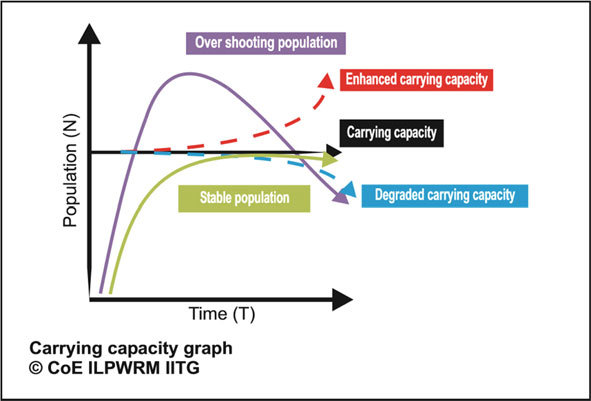There are many factors that might influence people to have fewer children.
There are some patterns
- Education level – as education rises, people have fewer children, especially for women
- Income – with rising income, people have fewer children
- Urbanisation – animals living in a zoo have fewer children than the wild
- Contraception – an obvious thing.
- Cultural Independence – people considering the cost to themselves.
But how do we know what the answer is?
In order to know we can look for clues in the animal kingdom, and civilisations in history. What causes animals to have more or fewer offspring? What caused population to decline in the last days of the roman empire?
One theory is about modeling.
Social Modeling
That it’s a biological decision that is often decided unconsciously.
People look at those around them to decide on how to live. They look at family models and and model their future family based on that.
They might look at their parents family, as a model, and those of their friends and family, and those without children, to decide which is the best model for them. This happens on a social genetic subconscious level.
The reason is that it is not some logical decision this is such a fundamental biological decision, something very core to our being, that happens to every animal and living thing,
Carrying Capacity
Carrying capacity can be defined as a species’ average population size in a particular habitat. The species population size is limited by environmental factors like adequate food, shelter, water, and mates. If these needs are not met, the population will decrease until the resource rebounds.

It would make sense that animals are very sensitive to an overshooting population. When we are in the situation of an overshooting population, every excess birth we have, makes the rest of the group worse off.
So the decision to have more or fewer children is a core feeling based on this.
The Problem
The problem with overshoot is that if populations fall it can spiral and the problem can become worse and worse so the carrying capacity falls. The economic system is completely connected.
At the other side, we are able to increase the carrying capacity.
The Solution
5 Bedroom Houses are Not the Norm
For the first time since data became available, newly-built houses in Britain have been built with fewer than three bedrooms per house in the 2010s. From the 1930s until the 1980s, the number of bedrooms fluctuated between 3.16 and 3.63 rooms per house, however declining family sizes caused this number to gradually decrease from the 1980s onwards, and in the 2010s the average number of bedrooms has fallen to 2.95 rooms per house.
The solution to having more children is not to encourage more individuals to have larger families, that doesn’t fix the problem which is overshoot.
Just as the problem happens on a societal level, the solution is also on a societal level.
The solution is related to these two concepts: Social Modeling and Carrying Capacity.
Are we in a situation of population overshoot? It seems there are many people in the world who would argue that we are. “We are too many, we are damaging the environment” and it is not sustainable, is a feeling that many people have.
In order to encourage people to have more children, we need to make life better for them.
We need to increase the carrying capacity.
In UK in 2023 there were 630,000 new births, 599,274 deaths, net migration of 672,000 and 210,320 dwellings. Which means there were 702,000, and 133,213 new dwellings. Even considering each home has space for two people, there just isn’t enough space for populations to expand.
There are now around 8.5 million people in the UK with ‘unmet’ housing needs, according to the National Housing Federation, as continued weak supply has been exacerbated over the last 20 years by a growing UK population. Source
By this measure, the UK has a backlog of 4.3 million homes ‘missing’ from the national housing market.
This means it would take 654,000 new builds per year for the next decade to make up the shortfall, or at least half a century under Government plans to build 300,000 homes a year.
People aren’t going to have more children if they can’t afford houses, or if they are living in 1-2 bedroom city apartments.
Building enough houses should therefore be one of the primary goals to grow birth rates. We could build new cities with larger houses, and people would fill them and populations would expand.
When people see that there are others that are thriving, they will too follow them into buying these houses.
As we can see in populations, they will have fewer children until we reach an equilibrium.
What would a country that was able to afford 5 bedroom house for every couple look like?
Economics
But the economics of it must make sense. They should not be unaffordable, or owned by landlords who rent them out for profit.
Short-term increases in house prices lead to a decline in births among non-owners and a net increase among owners. The estimates imply that a $10,000 increase leads to a 5% increase in fertility rates among owners and a 2.4% decrease among non-owners. Source
Why aren’t we building more houses?
Because of how our economic system is set up.
The economics just don’t make sense for builders to build new houses. Buyers don’t have enough money. Or rather, house prices are at too high levels for the market to afford it.
UK house builders are slowing the rate at which they build homes to protect house prices. Source.
This is because of bank lending that has artificially raised the prices of houses.
There is an economic failure. Our economic system is not getting better.
This is what happens when a society gets wealthier. Those homeowners become policy makers, and they look to protect their holdings. As people age so much of their income is tied up in their property. A massive increase in property supply would cause house prices to fall.
Nobody wants to suffer the short term pain to fix these problems. Any government that collapses the value of properties at the level that is needed would lose popularity, destabilise the economy and be voted out.
The only solution is that it needs government intervention to build massive loads of new houses. It needs social balancing of the housing supply.
Pension Systems:
In countries with robust pension systems, people may feel less need to have children to ensure support in old age.
Economic Problems & Reform
I believe there are 3 problems with our economic system.
This is partly because those who really understand economics will and work in finance to get wealthy rather than make better economic models for us.
The problems are:
- We are living in a economic model of scarcity, which leads to scarcity. In reality resources are abundant.
- Our Factors of production are not correct as we enter the digital age. We nee to rethink our entire economic system
- GDP is not a good measure of economic output. It is backward looking, and results in “milking of population” . We need more comprehensive measures that are forward looking and include consumer surplus that do not distort our economic system.
We also have the problem of our political system which is failing to solve this and other problems. It is failing to make life better for people and to expand and needs reform.
https://www.thisismoney.co.uk/money/markets/article-12643891/Why-housing-shortage-UK-Builders-blame-planning-dished-16bn-shareholders.html
